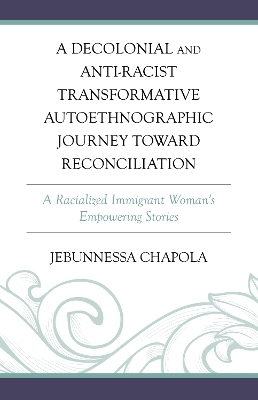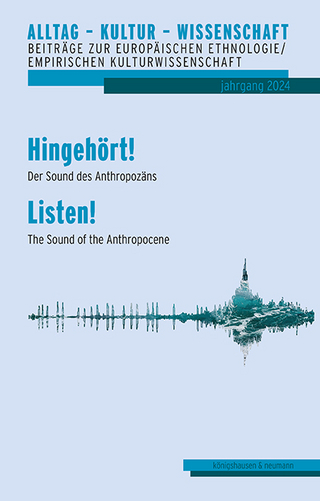
A Decolonial and Anti-Racist Transformative Autoethnographic Journey toward Reconciliation
Lexington Books/Fortress Academic (Verlag)
978-1-6669-7265-8 (ISBN)
While many non-Indigenous academic researchers have introduced the concept of reconciliation in their work, they have not adequately explored what it means for transnational immigrants and refugee communities to view reconciliation as a source of knowledge and understanding. How can assuming responsibility for reconciliation empower immigrant and refugee women communities? Why should immigrant and refugee communities embrace decolonial and anti-racist ways of knowing and acting to foster meaningful relationships with Indigenous communities? What does it entail to comprehend 'decolonial and anti-racist learning and practice'—as a system of reciprocal social relations and ethical practices—as a framework for reconciliation? Decolonial and Anti-racist Transformative Autoethnographic Journey toward Reconciliation: A Racialized Immigrant Woman’s Empowering Stories aims to address these interdisciplinary questions. It endeavors not only to challenge our static comprehension of reconciliation but also to demonstrate how assuming responsibility for relearning decolonial and anti-racist meanings in our everyday practices is essential. These include: cultivating respectful relationships with Indigenous peoples, honoring Indigenous Treaties, taking steps to decolonize our ways of knowing and acting, understanding the impacts of colonial education processes, preserving our Land and environment, ensuring food security and nutritional adequacy, fostering intercultural spaces for social interactions, and promoting transnational empowerment.
Jebunnessa Chapola is postdoctoral fellow at the Johnson Shoyama Graduate School of Public Policy, University of Regina.
Table of Contents
List of Tables
List of Figures
Acknowledgements
Chapter One: Reflective Learning Meanings and Implications of Land Acknowledgement
Chapter Two: Why Do We Need Decolonial and Anti-racist Reflective Learning
Chapter Three: Decolonial Reflective Worldviews
Chapter Four: Decolonial Feminist Autoethnographic Research Methodology and Method
Chapter Five: Decolonial Reflective Learning Space for Community Building Bridges
Chapter Six: Decolonial Challenges for Racialized Artists of Colour in Canada
Chapter Seven: Reflective Learning from Indigenous People, Knowledge, Land, and Decolonization
Chapter Eight: Reconciliation as Taking Responsibility
References
About the Author
| Erscheinungsdatum | 04.07.2024 |
|---|---|
| Reihe/Serie | Decolonial Options for the Social Sciences |
| Sprache | englisch |
| Maße | 157 x 236 mm |
| Gewicht | 463 g |
| Themenwelt | Sozialwissenschaften ► Ethnologie |
| Sozialwissenschaften ► Politik / Verwaltung | |
| Sozialwissenschaften ► Soziologie | |
| ISBN-10 | 1-6669-7265-7 / 1666972657 |
| ISBN-13 | 978-1-6669-7265-8 / 9781666972658 |
| Zustand | Neuware |
| Haben Sie eine Frage zum Produkt? |
aus dem Bereich


